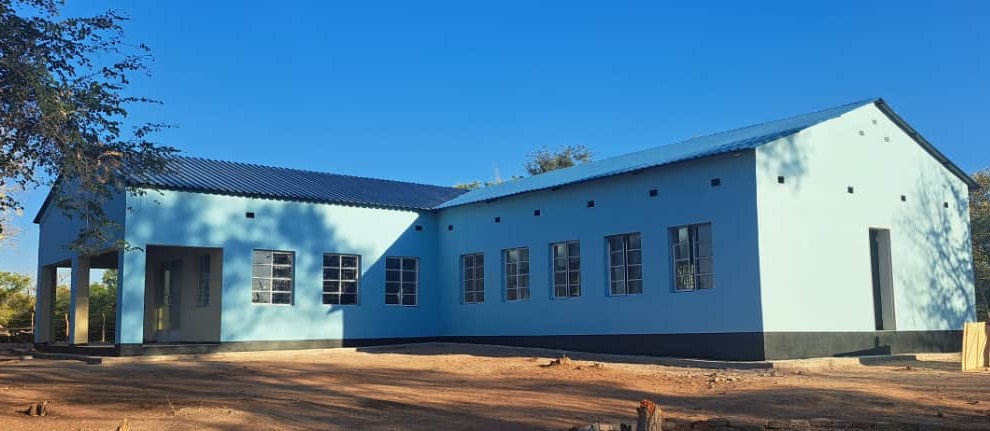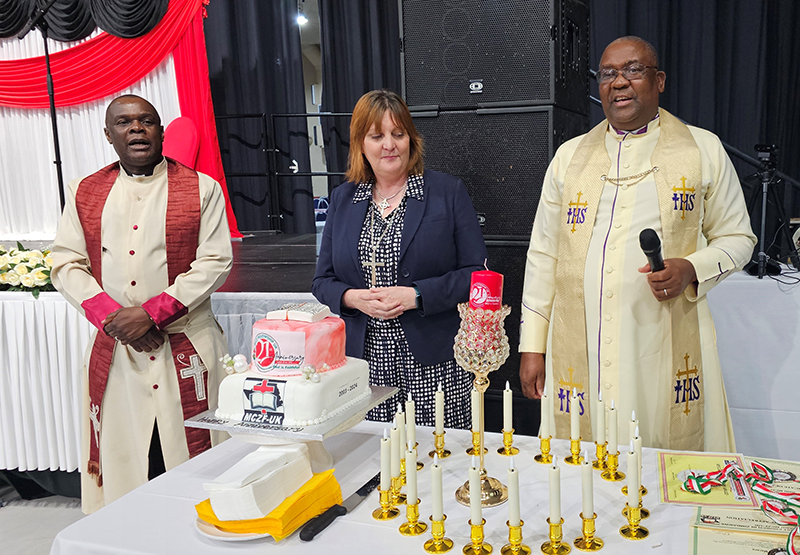Faith in Action: Dura raBishop/ Isiphala sikaBishop – MCZ Response to the El˜nino Induced Drought
Zimbabwe, like most Southern African Countries is grappling with the severe effects of the El˜Nino Induced drought and the Methodist Church in Zimbabwe members have not been spared as the drought is superimposing on already existing harsh economic environment. The El-nino induced drought saw the Zimbabwe President declaring the 2023/2024 summer cropping season a national disaster as 40% of maize crops were classified as ‘poor’, and 60 per cent as “a write off”. An estimated 7.6 million people urgently requires lifesaving humanitarian assistance and livelihood support. Of these an estimated 4.5 million people from the rural areas are food insecure including the Methodist Church in Zimbabwe (MCZ) community whose majority rely on rain fed agriculture for their livelihood. The humanitarian crisis is not only affecting the physical well-being due to food insecurity (lack of access to nutritious food) but the Psycho-social/mental wellbeing of these vulnerable members especially women, girls, children, the elderly and persons living with disability.
True to the MCZ mission of being an “oasis of life, love, justice, peace and hope”, the Methodist Church in Zimbabwe recognised the severe impact of the El-nino induced drought on the MCZ members and put faith to action by sourcing funding to support the vulnerable members of the church. The MCZ through MeDRA was pro-active in developing a drought appeal and fundraising to support the most affected vulnerable populations from the MCZ Mission Circuits. The generous support from the World Mission Fund through the Methodist Church in Britain availed a Solidarity Grant- Urgent Drought relief for residents of Mission Circuit in Bulawayo District, Matabeleland which was locally dubbed Dura raBishop/Isiphala sikaBishop.
The food distribution initiative reached a total of 210 households including seven (7) ministers. This translated to 1061 individuals (625F;436M) 21 People with Disability from the mission circuits of Mzinyathi, Insiza, Mbembesi and Bubi-Ezra in Bulawayo District. A circuit and society-based approach was used to identify and register the beneficiaries with support from MeDRA. There was strong local community involvement and support during the registration and food distribution.
The Solidarity Grant #DuraRaBishop/IsiphalaSikaBishop was officially launched at Bubi Ezra circuit by the MCZ Presiding Bishop Rev G.T. Mawire who congratulated the District Bishop Rev P. Chauya and the congregants from Bulawayo District Bubi-Ezra Circuit on being the first recipients of the Dura raBishop/Isiphala sikaBishop and underscored the need for the MCZ community to take up the challenge and work towards expanding this noble cause to positively impact other needy members of the church from other vulnerable mission circuits. The Presiding Bishop’s call to action is inspired was Matthew chapter 25 vs 35-36 “For I was hungry and you gave me something to eat, I was thirsty and you gave me something to drink, I was a stranger and you invited me in, I needed clothes and you clothed me, I was sick and you looked after me, I was in prison and you came to visit me”. The Presiding Bishop was accompanied by the Acting Mission Director Rev Dr. Muzenda, the local village headmen from Bubi Mr Ndhamini also attended the event and appreciated the role of the church in alleviating hunger in the marginalised communities. The headman applauded the Presiding Bishop on the great work which reflect that the church puts to action what is said in the word of God (Bible) on feeding the hungry and helping the poor. In response the circuit steward Mr Khumalo expressed gratitude on a wonderful job being done by the church in such a difficult time.
Awareness raising on safeguarding was conducted by the MeDRA Program Manager, Ms T. Washaya at all the distribution points and the MeDRA toll free number (08080551 for Econet lines) was shared. The MeDRA National Director, Ms K. Ndawana sensitized MCZ members on the reality of Climate Change and the need for communities to be pro-active and adopt strategies which combat climate change with emphasis being made on agro ecology. She reiterated on adoption and planting of small grains which are drought tolerant. The need to engage with technical expertise and to heed advice of agricultural extension workers was noted and to make use of reliable sources of information for expert weather forecasting like the radio whilst harnessing on existing Indigenous Knowledge Systems.
By Mrs K. Ndawana


